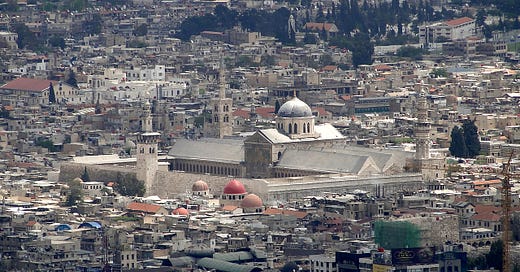The Fall of Damascus and the Death of Ataturk
Examining the regional and civilisational implications of the likely fall of Damascus.
Over the course of ten days, the Syrian government lost the cities of Aleppo and Hama, the country’s second and fourth largest. It is withdrawing from Homs, seemingly towards the coast.
Government fo…
Keep reading with a 7-day free trial
Subscribe to Modad Geopolitics to keep reading this post and get 7 days of free access to the full post archives.


